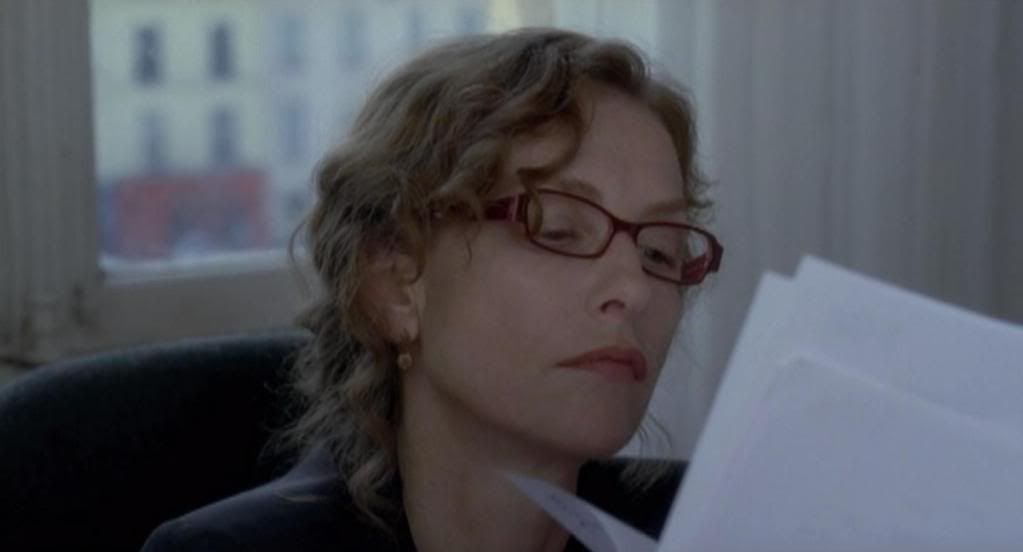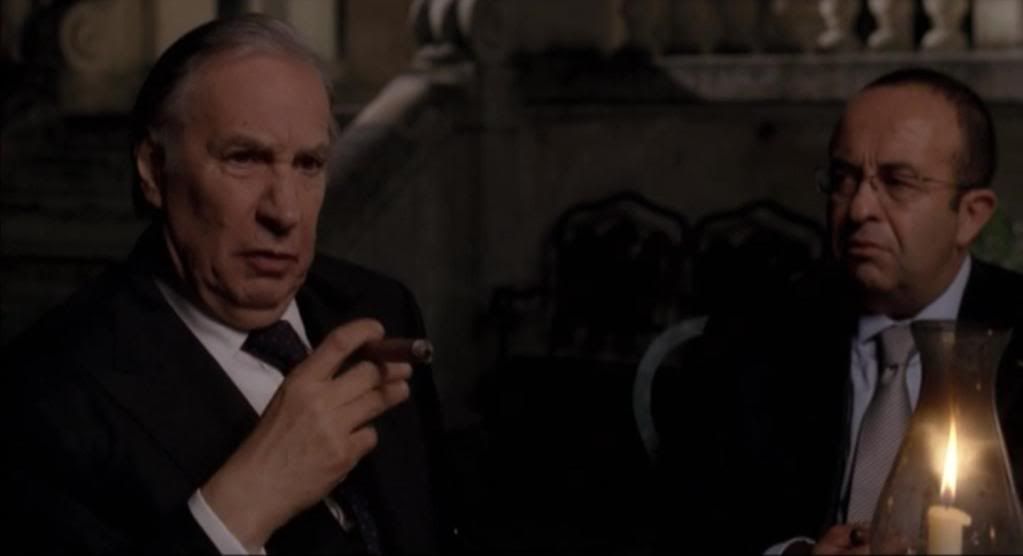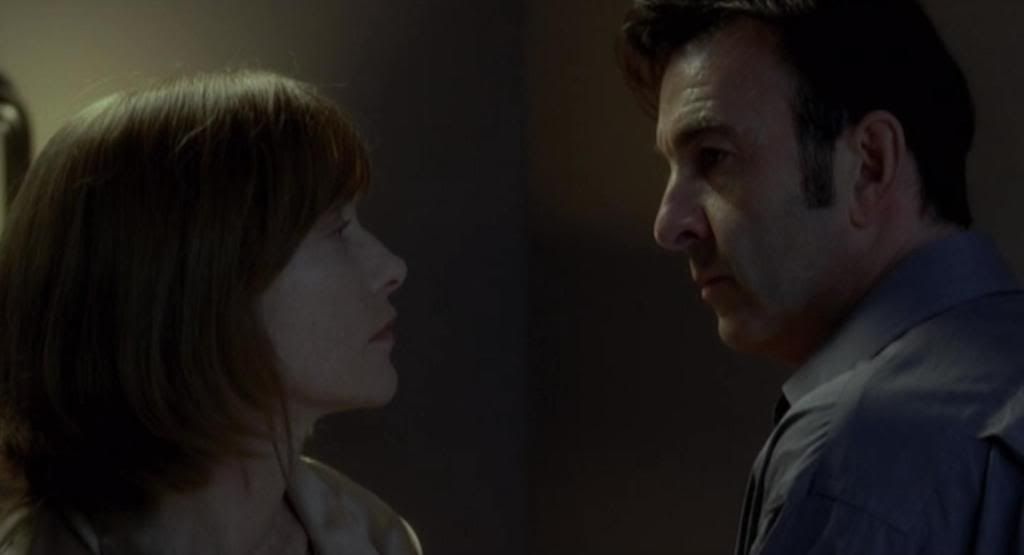
Claude Chabrol's Comedy of Power is somewhat ironically titled, and knowingly so, because there's little that's funny about this deadpan chronicle of an investigation into the abuses of various politically connected businessmen and corrupt politicians. The film opens, disingenuously, with the usual disclaimer about the film's fictional nature, any resemblance to real people being a coincidence, and so on, when of course this film is thoroughly grounded in real world analogues. These corrupt businessmen are extremely recognizable from any number of real scandals, these men (always men, of course) who line their pockets, lavish company funds on their mistresses, funnel money off into foreign bank accounts, dodge taxes and bribe anyone who could potentially stand in their way.
Investigating one of these scandals is Jeanne Charmant-Killman (Isabelle Huppert), a powerful judge who deposes various high-ranking corporate officers and political functionaries in an effort to trace a web of corruption and graft through the chambers of power, as high and as far as it goes. She starts with Humeau (François Berléand), the former chairman of a politically connected organization that operates in foreign countries, and she begins working up from him to more important figures in what seems to be a tremendous network of rich, powerful men. The film is very simple in form, consisting mostly of a series of conversations between Jeanne and her subjects, shot in intimate closeups that capture her brisk efficiency and their nervous, almost self-consciously boyish embarrassment at getting caught. Humeau is a mess, constantly scratching at his nervous skin condition, leaving splotchy red marks on his face as he withers under Jeanne's relentless questioning. Later, the smoother Boldi (Jean-François Balmer) confesses, chuckling shyly, that he's not used to squealing.

All these good old boys, these powerful men with their expensive lifestyles and mistresses and palatial homes, are being brought down and humbled by a petite, unassuming woman. As in many of Chabrol's late films, he's dealing with female archetypes and clichés: the victim (A Girl Cut In Two), the femme fatale (The Bridesmaid) and, here, the frigid career woman. Jeanne is a wiry bundle of nervous energy, seldom sleeping through the night, always getting up to check on some facts or think about her work. Her husband (Robin Renucci) is quietly detached from her, their marriage passionless. During interviews at work, she projects smug professionalism, asking sarcastically loaded questions and flashing quick, strained smiles that convey anything but mirth.
Jeanne is a bit of a stereotype, the cooly ambitious ladder-climbing bitch, but then the men she's opposing are every bit as stereotyped, because Chabrol is deconstructing this familiar male/female power dynamic, examining the ways in which male power is assumed and engrained in the very structure of society, while female power like Jeanne's is more ephemeral, requiring constant hard work to maintain, demanding every moment of her attention, and even then it can be taken away without warning at any time because she's not truly in power. The real power brokers meet in office suites with majestic views, smoking huge cigars, discussing their next move while Chabrol playfully accompanies their chats with outrageously sinister music, telegraphing their status as stereotypical big business movie villains.

Throughout the film, no matter how far Jeanne digs into these conspiracies and scandals, the business goes on as usual, the real powers untouched as the underlings and public figures take the fall and are seamlessly replaced by new, equally malleable figureheads. Towards the end of the film, these fat cats meet to analyze the damage done to their work by Jeanne's investigation and arrests, and they merely conclude, "the system held up well," that the overall structure remains intact no matter how many pawns are taken. Chabrol is powerfully conveying a sense of the fruitlessness of fighting against this kind of power from within: Jeanne dedicates her life to her work, to her sense of justice and her pride in her own competence, sacrificing private and familial happiness in the process, but what she ultimately accomplishes is a flashy show that does nothing to get to the core of the problem.
The real issue is international, and involves Western governments and businesses meddling in the Third World, as hinted at in the scene where several of these men meet with an African leader. Considering the real global stakes and the governmentally sanctioned exploitation of, as Jeanne says, countries where people routinely die of curable diseases, Jeanne's exposé of businessmen with mistresses and personal extravagances charged to corporate credit cards begins to seem petty and beside the point. If this is a "comedy of power," then the joke is on Jeanne, and it's probably being told in a smoke-filled private club by one of these untouchably powerful men.
Wow, Ed, fabulous writing! While there is certainly nothing funny about this subject, I do think Chabrol brings some strongly biting humor to it, for example, Jeanne speaking at a sushi restaurant with one of her "untouchable" quarry while a large, threatening fish swims in a tank behind them. But of course, you're right, there is no happy ending here, just another round over. Super work!
ReplyDelete